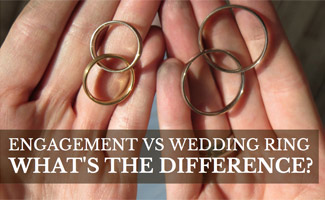The Real Meaning of Valentine’s Day
 “Love is never having to say you are sorry” (Snoopy). “Love is like a friendship caught on fire” (Bruce Lee). “At the touch of love, everyone becomes a poet” (Plato).
“Love is never having to say you are sorry” (Snoopy). “Love is like a friendship caught on fire” (Bruce Lee). “At the touch of love, everyone becomes a poet” (Plato).
Love is the theme of Valentine’s Day. Valentine’s Day is all about this mystical, amazing, intoxicating thing we call love. It is the designated time to show the object of our loves just how much we love them. We do this by buying sweet things, red things, pretty things, and sexy things. We do this by going out, staying in, making something special and saying “I love you.” Do we really need a specific day dedicated to love? Apparently we do. And that day is February 14 – every year – Valentine’s Day.
Like anyone, I can easily get caught up in the red and pink frenzy. But every year, I find myself contemplating the commercialism surrounding this love-fest and I wonder how to find the balance between the enthusiastic buildup all around me and the internal aim to find authenticity in showing my love to that special man in my life.
If the meaning of Valentine’s Day is all about love, then I have to ask, what is the connection between love, and all the sales and marketing hype that consumes us at this time of the year? Why do we fall prey to the plethora of advertising messages that turn the world red and pink? Dinner out, movie dates, hallmark cards, flowers and candy and silky red boxers? Oh yeah, we all do it. And we do it on, or as close to, February 14th as we possibly can.
Meaning of Valentine’s Day = Love?
What’s love got to do with it? Well honestly, very little. I propose that Valentine’s Day is not about love at all, but rather about obligation. In his book, The Tipping Point, Malcolm Gladwell suggests that the “Power of Context” is the phenomenon of people being affected, even persuaded, by things in our immediate environment; and that such context has the power to change behavior and thinking. A simple example is when you are in a good mood, then you join up with a couple of people who are arguing, and your mood becomes deflated. Even if the impact of this environment is small, nearly unnoticeable, its power to change you is nonetheless present, and, according to Gladwell, very powerful.
Compare this example with something much more obvious – the tremendous commercialism that swallows us up every year in mid-February. We are bombarded from every direction – saturating all of our senses with the message that 1) Valentine’s Day is about love; and 2) we have to present our lovers with something that will demonstrate, even prove, our professed love. Now that’s a dramatic context for this theory.
Keep in mind that humans are designed to love and be loved. We are programmed such that we can literally die from a “broken heart”. This instinctive draw towards love cannot counter the Power of Context when the focus of that context is love. Marketers have a win-win situation with this one. The sale is basically ready-made because it hinges on love.
What’s love got to do with it? Maybe, just maybe, Valentine’s Day is a sugar-coated obligation. Think about it: we succumb to the idea that Valentine’s Day is about love, lured in by the romantic images and promises that are attached to every red heart and every sales flyer. Once captured, we don’t dare to question the meaning of Valentine’s Day. To do so would be blasphemous!
OK. OK. But indulge me here for a moment as I take a critical detour. Along with my argument that we should question this globally accepted definition of Valentine’s Day, I want to demonstrate that there is a real benefit to such questions. Stay with me and you will see where I am going with this. If we can just take off the rosy-tinted glasses long enough to consider that the love associated with Valentine’s Day is a love chained to standards of measurement and competition, we can better appreciate it. Valentine’s Day love is a love clothed in expectations. We determine how much we are loved by the gift received. We compare our bouquets and diamonds and boxes of chocolates with those received by our friends. We expect something specific and feel cheated if it doesn’t happen.
The very design of Valentine’s Day as we know it today sets us up for disappointment. But if we would allow ourselves to admit the quality of obligation that is also attached to Valentine’s Day, we would free ourselves from disappointment and set ourselves up instead for true joy. We may even be able to experience “true love”.
Origins of Valentine’s Day
The love theme is validated by the origins of this holiday. Certainly Valentine’s Day is rooted in the air of romance. Did you know that today’s American Valentine’s Day comes from a blending of two different stories in our collective history? They are great stories, well worth your time to explore, but for now, let’s just capture the general summaries.
Saint Valentine, The Romantic Priest
According to legend, in the early days of Christianity (in the 3rd century), the Roman Emperor believed that single men were better warriors because they could focus their minds on the battles without being distracted by thoughts of a beautiful woman at home. As a result, he enforced a law that denied soldiers the right to marry. As with any rules and laws, however, someone always finds a way to get around them. In this case, it was a Christian priest by the name of Valentine. This priest apparently married many Roman soldiers in secret ceremonies.
And as if that isn’t enough romance for one guy, Valentine’s heart-warming sentiments even went to a personal level. He was later jailed for his Christian faith. While in prison, the jailer’s daughter was responsible for delivering his daily food ration. Well, as the story goes, Valentine fell madly in love with the young girl and apparently wrote her many letters in which he professed his love. He signed them, “your Valentine”, a tradition we carry on even today.
A Celtic Festival – Frolicking in Romance
Before Christianity, the middle of February was the time that people celebrated a festival dedicated to Lupercus, a fertility god. To celebrate, a goat would be sacrificed and then its hide cut into strips. The men would then run into the streets, chasing the women and slapping with the bloody hides. The intent was to “bless” them with fertility. The festivities ended with the men choosing a woman to be his partner.
The Evolution of Traditions
With human migrations, these two facets of our history slowly merged into the same time and place and eventually, morphed into today’s Valentine’s Day. It is clear to see the foundation of the notion that Valentine’s Day is all about love (and a little romantic mischief). And because it is human nature to seek both loving relationships and playful romance, we readily embrace these sweet Valentine’s Day traditions.
There is nothing wrong with this and I have no intentions to put a damper on any of it. I am merely suggesting that we can all enjoy the Valentine’s Day traditions even more if we will just open our eyes to the obligatory component and deal with it honestly. It is the yin and yang of life, really. Where there is blissful love, there is also obligation. And where there is obligation, there is order, responsibility, and yes, even love.
We like the love stories, but not the burden of obligation. However, it is there just the same and it does us no good to deny its existence. Consider the following scenarios: In the first one, you buy a romantic gift for your special someone and s/he doesn’t really like it. You can see the disappointment in your lover’s eyes, but keep on smiling to cover embarrassment and your own disappointment. Your lover doesn’t want to discourage you, so s/he keeps on smiling as well. Obligation takes precedence, though ignored, and pretense sets the stage for the time being. In the second scenario, you are simply not in the mood; you don’t want to buy a gift. But you know the ramifications of not getting one, so you go shopping. (Obligation?) Or perhaps your special someone isn’t in the mood and doesn’t even try to hide the disappointment. An argument follows.
Haven’t we all experienced some version of this at one time or another? This too, is part of modern Valentine’s Day traditions. The Japanese have what they call “giri-choco”, meaning obligatory chocolate. Girls spend hundreds of dollars on beautifully packaged chocolates and give them out to all the men in their lives including teachers, classmates, and bosses. It is expected by all parties and the sentiment of obligation is included in the expectations.
I think there is a lesson for all of us in this idea of obligation as being a part of Valentine’s Day. Facing the existence of obligation head-on and honestly allows us to give more honestly from the heart and to be truly grateful when we are on the receiving end. This year, I encourage you to give because you are obliged to, but don’t expect anyone else to follow suit. If we all do this, we will all be happy givers and grateful receivers.
Looking for love? Check out our online dating article or ready to pop the question? Then read our online engagement ring comparison article.
Isn’t this really what love is all about?




